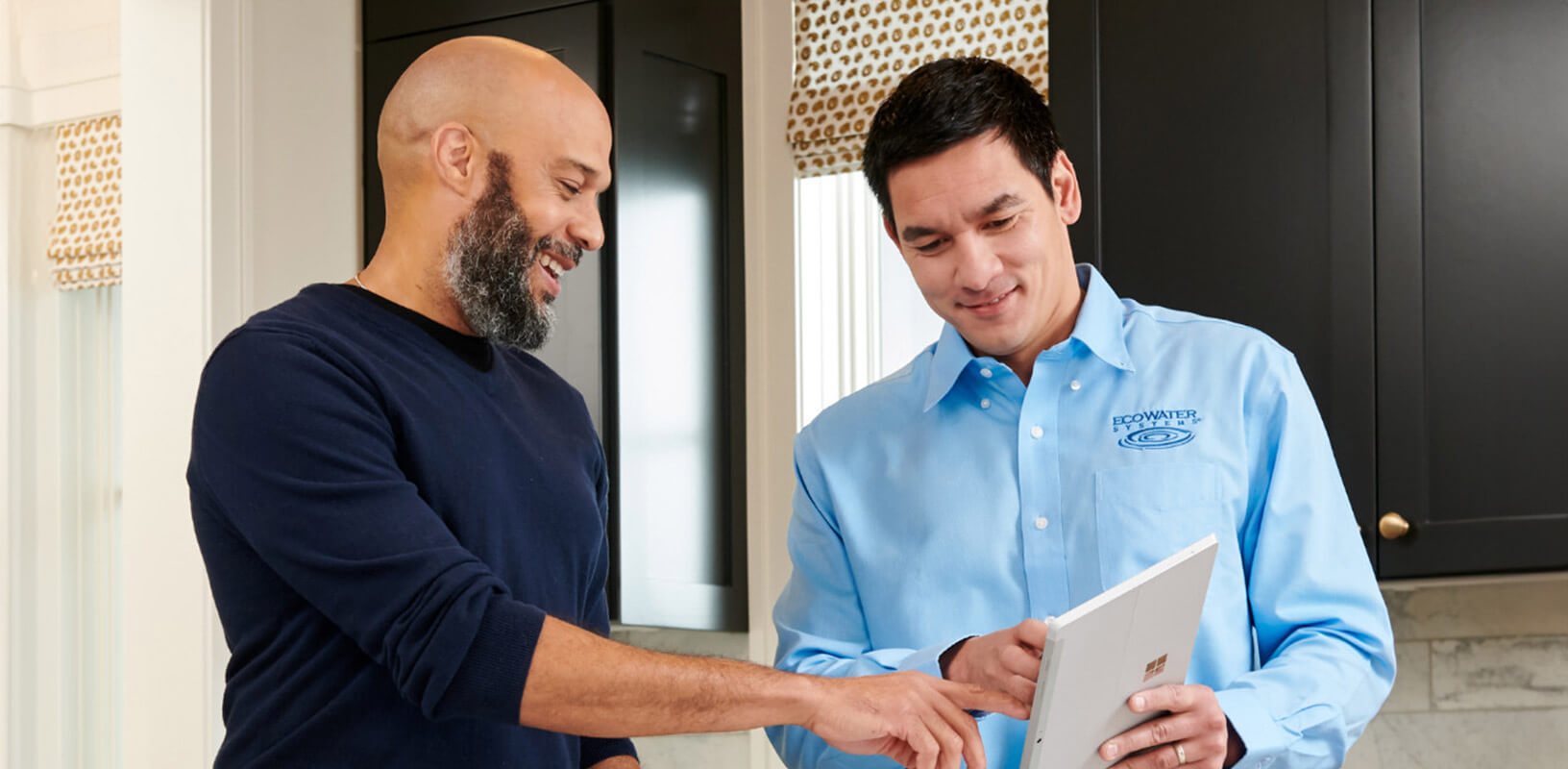Debunking Common Water Softener Myths
A water softener is a powerful solution for people struggling with the effects of calcium and magnesium buildup on their water-using appliances. Softer water means dishwashers, washers and dryers, water heaters and other appliances can function without the damaging effects of mineral buildup left behind by hard water. The benefits of installing a water softener are plentiful—but many customers are left to wonder if water treated by these systems is safe to drink. Before you purchase a water softener, it’s important to understand how a water softener transforms hard water into soft and its impact on people and pets. Let’s take a look at the softening process and what it means for you.

How Water Softeners Work
First, let’s brush up on how water softeners work. The goal of the softening process is to remove the mineral content in your water. Connecting to your main water line, a softener sends water into a tank filled with resin beads that attract hard water minerals, specifically calcium and magnesium in exchange for sodium. This turns the hard water into soft water. This water then flows from your softener into the rest of your home.
Eventually, your water softener’s tank will need to be flushed clean by going through a regeneration cycle. During this regeneration process, salt water from the additional tank rinses out the resin-holding tank, washing away the minerals and ensuring the softener can continue to work as intended. Because water softeners do use salt to clean the resin beads, some people wonder if there are any disadvantages to soft water—and, more specifically, whether drinking it is bad for you.
So, is soft water bad for you?
No, soft water is not bad for you. In fact, soft water is much better for your skin and hair than hard water, which can leave your hair brittle and skin dry. Though the process and terminology of water softeners can seem complex, it is a simple but effective process that offers you a much higher quality of water.
Do water softeners make my water taste salty?
The biggest misconception about water softeners is that they use salt to soften water. Salt (sodium chloride) is used in the regeneration process to prepare the resin to continue attracting hard water minerals. Though water softeners use salt in the regeneration process, it will not cause your water to taste salty, as salt and sodium are different. What you think of as “table salt” is really sodium chloride, not sodium.
The amount of sodium found in softened water does not represent a significant portion of the daily intake for the average person—which means drinking soft water is not bad for you. If you have a water hardness of 11 gpg (grains per gallon), the amount of sodium found in 8 oz. of water would come down to 20 mg, which is significantly less than a glass of milk!
What to do if you’re concerned about sodium intake
If sodium intake is a health concern, it’s a good idea to talk about the potential risk of installing a water softener with your healthcare provider. People who need to keep a close eye on sodium intake can install a reverse osmosis system as a filtration method to ensure that any excess sodium from their softened water is filtered out. This filtration system is a sophisticated and thorough way to reduce common water contaminants both large and small.
Even if sodium intake is not a concern of yours, a reverse osmosis filtration system is still a great option if you notice your water smells or tastes like chlorine, or you’re worried about another source of water contamination.
One more option you may consider is to use potassium chloride water softener salt instead of sodium chloride in your water softener. Again, a healthcare provider can give you specific direction on whether sodium in water softeners is something you need to be concerned about.
For the average homeowner, the benefits of soft water will outweigh the additional sodium. Speak to an EcoWater Pro about your specific water issues to find the solution that works for your home and needs.

Get Answers From an EcoWater Dealer Near You
It’s easy to find an EcoWater dealer near you who can help solve and answer any of your water problems.